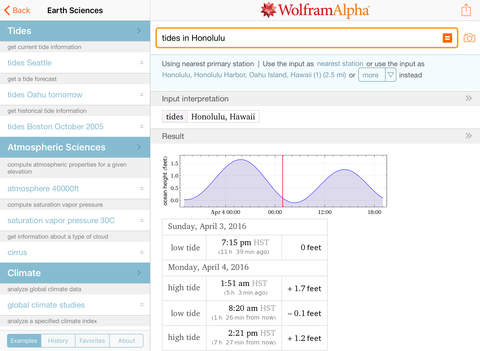

Return Int(self.mantissa * other.Wolfram|Alpha Pro Launches Applies Computational Knowledge to Data From UsersĬHAMPAIGN, IL, (MARKETWIRE via COMTEX) - Wolfram Alpha LLC today announced the immediate availability of Wolfram|Alpha Pro, a new service building on its widely used Wolfram|Alpha computational knowledge engine. Whenever mantissa grows too large (more than keep digits), it removes digits from mantissa and increases exponent accordingly: def power(b, e):ĭef _init_(self, mantissa, exponent=0):
WOLFRAMALPHA COMM CODE
My code ( Try it online!) represents a number as two integers mantissa and exponent, representing the number mantissa × 10^exponent. If you want more correct digits, just keep more digits and the lower and upper bound will match for more digits. Do it again where we round up all the time so we get an upper bound of the real value.

Do it once where we round down all the time, so we get a lower bound of the real value. We can do that ourselves in less than a millisecond by keeping just the first let's say 50 digits. Even though the power is rather large, the numbers being multiplied never get more than 10 digits long, so everything is easy to work out, and repeated squaring provides a major shortcut for the exponentiation. They also give the "last few digits" as 6100739387, but that's easily done using modular exponentiation: a recent version of Python will instantly return the same value for pow(3, 3**3**3, 10_000_000_000). Wolfram worked it out to a few more digits than I did, but this is pretty basic stuff with logarithms and not as expensive as computing 3^3^3^3 in integer arithmetic. You'll notice that the integer part of that gives you the number of digits, and if you take 10^0.09968557, you end up with 1.2580143 or so. Wolfram Alpha is giving you an approximate answer, which is much easier than calculating an exact answer. # After the third digits may be imprecise Val: int = None # actual int, if applicableĭef _init_(self, val: int = 0) -> None: Still, 3^(7.625e+13) takes abnormally very long time. However, I can cheat a little with Python, as it will automatically allocate more bytes for integer. This breaks both long long (integer, 18-19 digits) and double (float / IEEE 754, up to e+308 digits, with 17 digits' precision). However, when you look at the sample calculation from Wolfram Alpha. However, a class can easily be created in Python.Īt first glance, the calculation seems to be very straight forward.

I can't find a right algorithm / struct to calculate the number simply in C or Go.


 0 kommentar(er)
0 kommentar(er)
